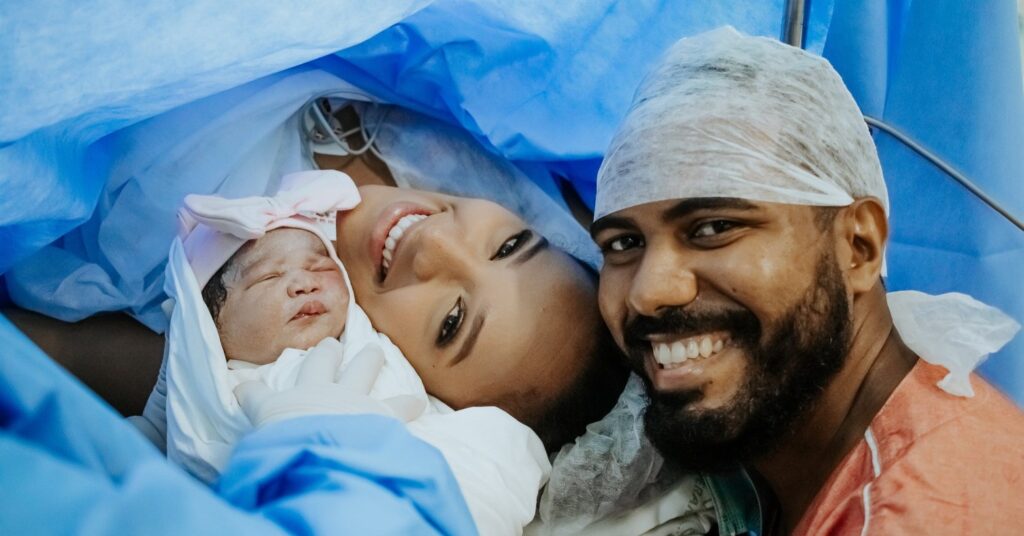
How Much Do Healthcare Data Analysts Make? A Guide to Healthcare Data Analyst Salary
All health data analysts sift and sort data to cull [...]

The ever-expanding field of health informatics (HI) has been described as the intersection where healthcare, data management, and technology meet. It is at this crossroads where medical professionals manage electronic health records (EHR) and utilize data analytics to diagnose medical issues, prescribe and monitor treatments, keep track of patient progress and outcomes, and develop new forms of medical care.
In their book Essentials of Nursing Informatics, Virginia Saba and Kathleen McCormick define healthcare informatics as “the integration of healthcare sciences, computer science, information science, and cognitive science to assist in the management of healthcare information.” Informaticists, including the subset of nurse informaticists collect data in information systems that assist in efficient and effective healthcare management for individuals and communities.
The field of health informatics is older than you may think. Over thirty years ago, the first computers were introduced into hospitals to manage patient data. The industry has been evolving ever since.
Innovations in the healthcare industry have created an ever-growing demand for robust, secure internet technology and big data collection systems to manage more and more patient information. Electronic medical records (EMR) and patient-to-medical provider communication have become more accessible through the use of computer technology. Concurrently, the need to manage and share medical history and records between healthcare providers on safe and secure, HIPAA-compliant online platforms has grown.
Over the years, innovations in health information technology have been a boon to the healthcare industry. We have come a long way from paper medical records sorted into manilla folders and filed in imposing gray file cabinets. And long gone are the days of waiting for faxed patient records to come through dial-up phone connections.
With the advent of digital technology, patients no longer have to hand-deliver paper prescriptions to pharmacies to receive medications. Patients and medical professionals no longer have to rely solely on the physical and verbal transfer of information. Now information is shared conveniently and quickly using portals and apps on computers and smartphones. We can thank the continually growing industry of health informatics for the technological initiatives that have made these advances possible.
On a global scale, data analytics has an impact on better care for the population overall. The Division of Laboratory Systems (DLS) at the Centers for Disease Control and Prevention (CDC) collaborates with regional and national systems to analyze electronic health records, monitor health trends, and provide best practices for medical care and intervention based on big health data collection and analysis. The drive to utilize accurate, fast and secure management systems in the medical industry is essential to promoting successful high-quality healthcare services to more people—which has a direct impact on the whole of public health.
The Healthcare Information and Management Systems Society (HIMSS) outlines myriad ways in which health informatics and nursing informatics touches on all aspects of healthcare for patients in and out of hospital settings.
According to the University of Pittsburgh School of Health and Rehabilitation Sciences, health informatics is transforming medicine and medical care in nine key ways. In this article, we will summarize each of these impacts health informatics is making on the healthcare system.
According to the Institute of Medicine, medical errors and inefficiencies cost the US nearly $38 billion each year, driving up costs in the industry and causing stress and anxiety among healthcare professionals and patients. Health informatics improves patient safety by reducing medical errors and decreasing wait times between diagnosis and treatment.
The US Food and Drug Administration reports receiving over 100,000 reports of prescription medication errors every year. Inaccurate dosages and allergic reactions to medications are among the harmful mistakes that can be avoided using evidence-based health informatics technology, such as Computerized Provider Order Entry (CPOE) and Clinical Decision Support Systems (CDSS).
Analyzing individual EHRs and cross-referencing medications using information technology helps medical providers efficiently tailor treatments for patients.
Telehealth is having a moment. Remote access to medical professionals has had a tremendous impact on patient care. This has been especially true during the COVID-19 pandemic when traveling to doctors and clinics has become harder and prohibitive. Many people have been reluctant to visit medical professionals in person.
While there is often no alternative to in-person medical examinations, the ability to access telehealth visits has made it possible for patients to receive some forms of medical care in efficient, timely, and safe ways.
Big data analytic tools collect, manage, and analyze large amounts of health data for use by doctors, nurses, and the wider medical community. These systems help healthcare professionals provide personalized medicine (also called precision medicine) to patients and directly contribute to more comprehensive personal care tailored especially to individual needs.
On a grander scale, health data collected in health informatics systems is used in research, leading to treatment innovations and alternative forms of care that improve health options for everyone and have an impact on public health.
Taken from the patient perspective, 24/7 access to electronic health records offers patients the opportunity to engage actively in self-care. Wearable and consumer-grade medical devices engage patients in the management of their care and promote productive patient-provider relationships that lead to informed decision-making in real-time.
Active patient participation has been shown to produce better outcomes for patients in general.
The collection, organization, and analysis of big health data inform researchers as they track diseases and develop treatments for the general population. The National Electronic Disease Surveillance System (NEDSS) at the Centers for Disease Control and Prevention utilizes healthcare technology to create standards-based systems that support national disease strategy, monitor outbreaks, and initiate responses to disease trends.
To track and respond to the Covid-19 pandemic, the National Notifiable Diseases Surveillance System (NNDSS) at the CDC analyzes data that monitors Covid-19 outbreaks and population vaccination levels to inform global response and develop strategies to mitigate surges in various communities.
Clinical trials are a necessary tool for finding innovative ways to detect, monitor, treat, and cure disease. Big health data collected by health informatics platforms helps identify potential participants for recruitment in clinical trials and speeds up the medical trial process from approval to renewal.
A review of clinical trial informatics by the National Library of Medicine praises health informatics as a critical tool in advancing medicine for the benefit of the world.
Well-planned data collections have a tremendous impact on clinicians’ ability to accurately diagnose medical conditions while also limiting the pitfalls caused by human error. Robust and efficient platforms that collect health data are driving innovations in medicine.
The Mayo Clinic is among the healthcare organizations implementing research trials making strides in finding early treatments, including possible vaccines, to help prevent breast cancer.
From diagnostic x-rays to early detection of disease, innovations in health informatics offer a direct impact on public health.
Data-driven management systems help identify high-risk patients and predict possible health issues. There is no question that early detection of disease is critical in treating patients effectively.
Early detection of pediatric illnesses such as asthma and cancer is shown to make an important impact on positive patient outcomes and long-term health. Additionally, early detection and treatment assist medical professionals as they work to mitigate other issues that may arise from untreated or delayed intervention.
The answer is that health information technology offers far-reaching benefits in all areas of healthcare. Patient access to EHRs through patient portals provides fast and safe contact with medical providers. Fact-based analysis of health data leads to faster diagnosis and efficient treatment options. Big health data collection helps develop and share information and innovative health initiatives with the greater population, such as medical screenings and vaccine approvals.
With consistent development and innovation, the expanding industry of health informatics remains at the forefront of public health.
(Last Updated on February 26, 2024)
Questions or feedback? Email editor@noodle.com

All health data analysts sift and sort data to cull [...]

The expertise in data analytics you develop through a master's [...]

Online master's programs are more highly regarded today than ever. [...]

A information technology master's degree can position you for management [...]

A degree in statistics can launch your career as a [...]
Categorized as: Health Informatics & Sciences, Information Technology & Engineering